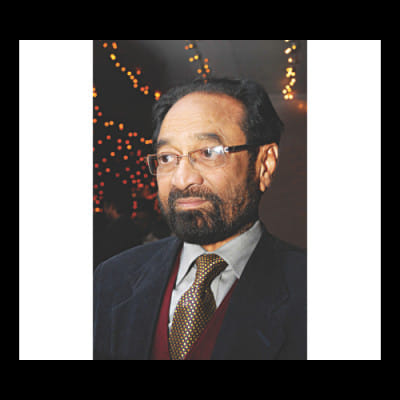New morning at Mujibnagar

It was not easy to form a government in exile. Apart from numerous external challenges, there were internal oppositions to overcome.
In a meeting on April 8, 1971, at the Lord Sinha Guest House of Kolkata, most student and youth leaders were in favour of forming a strong revolutionary council, not a government, to counter the Pakistan occupation forces.
“They argued that it was wartime and the leadership would emerge out of that. Participants in the meeting were mostly in favour of a revolutionary council,” said barrister M Amir-Ul Islam yesterday on the eve of Mujibnagar Day.
Then a young lawyer and politician, Islam accompanied Awami League leader Tajuddin Ahmad to India immediately after the Pakistan army's crackdown on Dhaka and the arrest of Bangabandhu Sheikh Mujibur Rahman on March 25, 1971.
They moved to Delhi after holding meetings with Indian officials in West Bengal, he said in an interview with The Daily Star.
In a meeting with Indira Gandhi, the then Indian prime minister, Tajuddin sought Delhi's assistance in the campaign to liberate Bangladesh.
Amir-Ul Islam, a member of the country's constitution drafting committee, recalled that Tajuddin was embarrassed when most of the leaders at the April 8 meeting were insisting on forming a revolutionary council.
Islam told the meeting, “One should not forget that Bangladesh is a country of Baro Bhuiyan. Nobody knows whether or not forming one council would follow forming more.”
Explaining the danger of a disorganised campaign for independence, Islam questioned how and to whom the armed forces, police, East Bengal Regiment, Ansar, government and semi-government officials would report if there was a revolutionary council.
“Who will represent Bangladesh while dealing with the Indian government, military and paramilitary officials?”
Without a government, Bangladesh's war of independence could be defined as a separatist movement as was the case of the Tamil Tigers in Sri Lanka, mujahids in Kashmir and so on. And no other country would support the war.
“We said the Yahya government was illegal and unconstitutional but ours would be legal and constitutional.”
The right to forming a government with the people's representatives was also recognised in the 1966 UN International Covenant on Civil and Political rights, he added.
The meeting decided to constitute the government. It would be made up of parliament members who had been elected through the 1970 general elections.
After the meeting, when everyone went to bed, Amir-Ul Islam drafted the Proclamation of Independence, incorporating the principles of “equality, human dignity and social justice”.
Later, a secret parliamentary session was held in a jungle tent and the government formation and its activities were approved.
Initially, Chuadanga was selected for the oath taking ceremony.
But, due to air attacks by the Pakistani army, Amir-Ul Islam proposed the mango orchard at Baidyanathtala in Meherpur as the venue, which was surrounded by Indian territories on three sides.
Amir-Ul Islam and Abdul Mannan -- both elected whips of parliament -- were given the responsibility of bringing in foreign journalists from Kolkata on April 17.
For the first time, two representatives of Bangladesh government met hundreds of journalists, including dozens from foreign media, when they went to Kolkata Press Club on April 16 and requested them to be present in Meherpur.
On April 17, leaders and journalists gathered in the mango orchard by 11:00am. Acting President Syed Nazrul Islam was accorded a guard of honour. Chief Whip Professor Yusuf Ali read out the Proclamation of Independence.
During the oath-taking ceremony, on the stage were acting president Syed Nazrul Islam, prime minister Tajuddin Ahmed, MAG Osmani, commander-in-chief of Mukti Bahini; Abdul Mannan, chief of the government's press department, and cabinet members.
Amir-Ul Islam was in charge of organising the historic event. The area was then part of greater Kushtia and he was president of Kushtia Zila Awami League apart from being a member of national assembly (MNA).
Tajuddin renamed the place as Mujibnagar.
The Mujibnagar government led the Liberation War and mobilised world support. The nation was freed on December 16, 1971.
Asked if Bangladesh has achieved equality, human dignity and social justice -- the three fundamentals of the Proclamation of Independence, Amir-Ul Islam said it has not.
But, he added, the country is bound to move towards this goal.

 For all latest news, follow The Daily Star's Google News channel.
For all latest news, follow The Daily Star's Google News channel. 



Comments